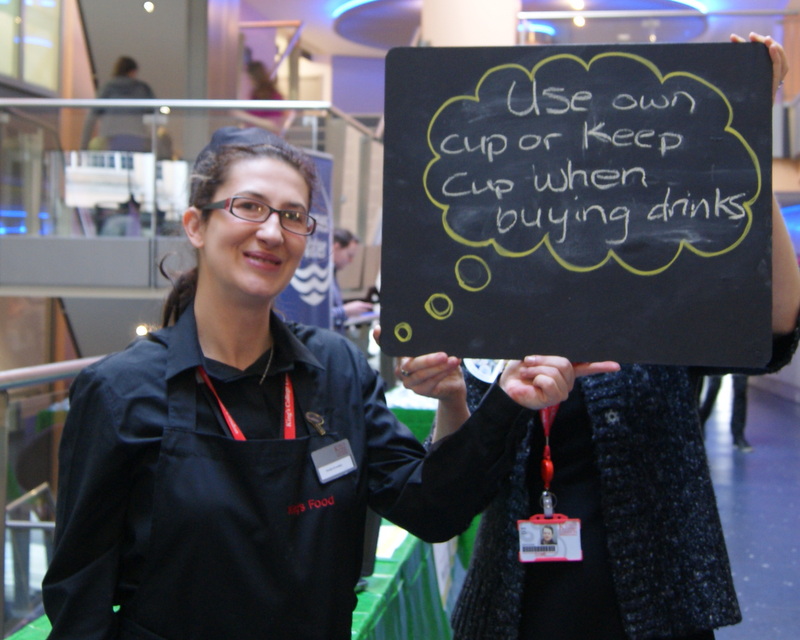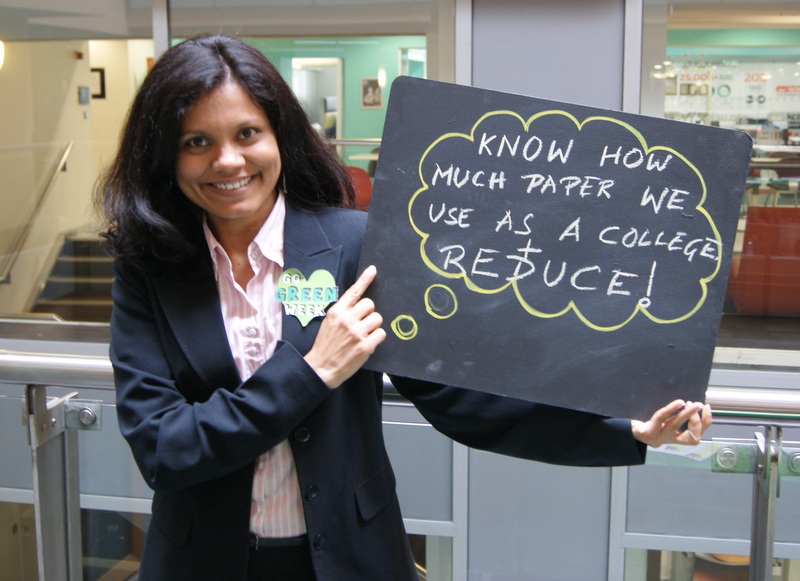Green Week 2014 was an action packed week. There were events scheduled at every campus in order to reach out to as many people as possible. One of the concluding events of the Green Week was the panel discussion at Strand. The topic was ‘A  sustainable future – mission possible?’ The distinguished panel comprised of both internal and external speakers – Aaron Re’em, Senior Account Director from TRUCOST, Dr. Nate Matthews from the Department of Geography and Prof. Mischa Dohler from the Department of Informatics at King’s. The panel tackled a wide range of questions ranging from the the need for a new definition for sustainability to the role of the private sector and governments. They shared examples of the need for critical change in several areas but it was most heartening to hear the positive examples they shared as well. Here are three positive examples shared by the speakers
sustainable future – mission possible?’ The distinguished panel comprised of both internal and external speakers – Aaron Re’em, Senior Account Director from TRUCOST, Dr. Nate Matthews from the Department of Geography and Prof. Mischa Dohler from the Department of Informatics at King’s. The panel tackled a wide range of questions ranging from the the need for a new definition for sustainability to the role of the private sector and governments. They shared examples of the need for critical change in several areas but it was most heartening to hear the positive examples they shared as well. Here are three positive examples shared by the speakers
1. A compelling business case may be the missing link to a sustainable future
The Carbon War Room analysed several technologies which had the potential to advance the low-carbon economy on a big scale. They looked for specific reasons why such technology hadn’t been adopted yet in the most polluting sectors and found that in many cases, it was simply a matter of poor communication and the need to create a compelling business case. For instance, the shipping industry is known to be a very big polluter. The industry uses raw diesel and cities with ports are usually extraordinarily polluted.
Although the technology exists to reduce this problem, the missing link lay in lack of market information. The company has recently launched operation shipping efficiency which aims to reduce carbon emissions by bridging gaps in market information related to environmental efficiency, encouraging key stakeholders to embed efficiency into decision making, and unlocking capital flow for technology retrofits. They found that through this there was potential for the shipping industry to save $70 Billion per year on fuel and reduce carbon and other pollutants by 30 percent.











